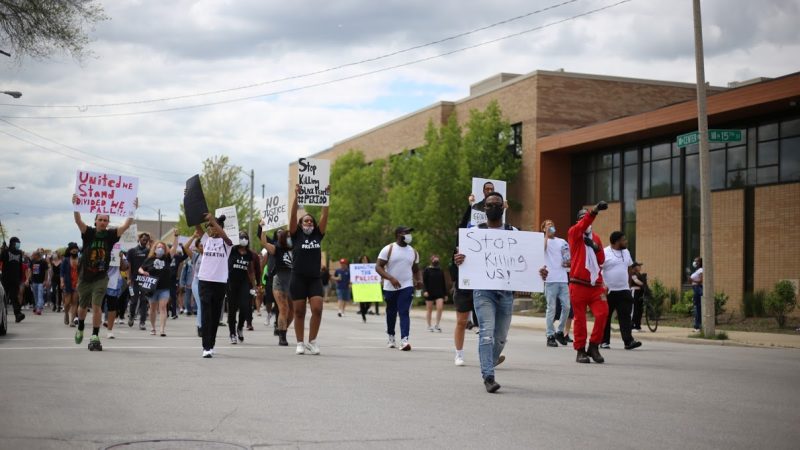The Senate Judiciary and Public Safety Committee recommended passage of a series of bills that would change police use of chokeholds and other policies.
During an executive session Thursday committee members voted overwhelmingly to pass bills that would ban police use of chokeholds except in life-threatening situations. Another bill backed by the panel would require police use-of-force policies to outline when use of force must be reported, how to report use of force and when officers who engage in or observe a reportable use of force must report.
Before passing the chokehold ban, committee members voted unanimously to add an amendment that expands the definition of chokeholds to include the intentional and prolonged application of force to a person’s throat, windpipe or carotid arteries that prevents or hinders breathing or blood flow, reduces the intake of air, or reduces blood flow to the head.
Sen. Kelda Roys, D-Madison, was the only vote against the chokehold ban.
>> WisPolitics is now on the State Affairs network. Get custom keyword notifications, bill tracking and all WisPolitics content. Get the app or access via desktop.
Roys said during the session she voted against the bill over concerns that it would allow officers an out to use chokeholds by giving them the chance to claim they felt their life was threatened.
She said it’s important to codify the fact that police officers should use the less-lethal tools they have before resorting to deadly force, but she is in favor of an outright ban on chokeholds.
“I’m really ambivalent about this bill because I do think it’s important that we say ‘no, this is not acceptable law enforcement,'” Roys said. “But I also don’t want to put in the statute that there’s an exception.”
But committee Chair Sen. Van Wanggaard said the bill would work to reduce police violence because it would change the legality of police use of chokeholds to mirror the legality of police use of firearms.
And committee members voted 7-0 to pass an amendment to SB 123 that specifies what kind of police use of force records and information DOJ must report annually. The information DOJ reports must comply with the reporting standards of the National Use of Force Data Collection system administered by the FBI. And DOJ must report a description of each incident on their website.
Roys was also the only member to vote against SB 124, which would establish a $600,000 grant program to fund community-oriented policing programs in cities with 30,000 or more residents.
Before a 6-1 vote to pass an amendment to SB 124, those grants would have only gone to cities with 60,000 or more residents. Roys was the only vote against the amendment.
The police reform package passed by the committee included four bills in total.
The committee also unanimously passed SB 229, which would make it a Class I felony to refuse to wear or tamper with GPS tracking devices such as ankle bracelets for recently released prisoners under DOC probation, parole or extended supervision
Sen. Alberta Darling, R-River Hills, praised the committee’s bipartisan efforts on the bills and the fact that most of the legislation was recommended to pass with unanimous or near-unanimous support from committee members.
Sen. Lena Taylor, D-Milwaukee, added the bills voted on Thursday don’t address all of the police reform issues she wants to get to. But she hopes the robust conversations from the committee public hearings and executive sessions will continue so people can keep working together to improve police policies.
Senate Majority Leader Devin LeMahieu’s office told WisPolitics.com those bills will likely be up for a floor vote this month and a date for that vote will be set soon.


